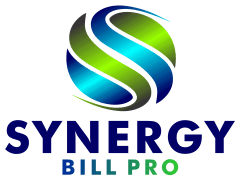Navigating the maze of behavioral health billing can often feel like battling an unseen adversary—denied claims, delayed payments, and endless paperwork. You’ve likely faced moments where every effort seems thwarted, forcing you to trade precious focus from patient care to administrative tasks. It’s a widespread challenge, but strategic, informed practices can provide much-needed relief.
In this guide, we’ve poured extensive research into uncovering proven methods to streamline your billing process. Experts’ insights paired with cutting-edge tools reveal overlooked strategies that can significantly boost your reimbursement success rate. We meticulously select these best practices to address common stumbling blocks many face, ensuring you are well-prepared for accurate claim submissions and smoother financial operations.
One key best practice for behavioral health billing is ensuring accurate coding, including using relevant CPT codes, ICD codes, and modifiers. It’s also essential to maintain compliance with HIPAA regulations and insurance requirements while fostering collaborative relationships with clients and insurers to streamline the billing process.
Best Practices for Submitting Accurate Claims
In the world of behavioral health billing, accuracy is paramount. It’s not just about filling out forms; it’s about creating a clear and comprehensive picture of the services provided to ensure proper reimbursement. Here are some key best practices that can contribute to successful claim submissions and minimize the chances of errors and rejections.
Comprehensive Documentation
Detailed documentation is the cornerstone of accurate claims. Treatment notes, patient consent forms, and comprehensive session logs should meticulously record and support every billable service. These records not only validate the services rendered but also provide a detailed account of the patient’s progress and the need for treatment.
Imagine each piece of documentation as a vital puzzle piece, coming together to paint a complete and accurate picture of the treatment provided. Comprehensive documentation not only supports the accuracy of claims but also helps to avoid discrepancies that could lead to claim rejections or audits.
Double-check patient information
Errors in patient information can lead to claim denials. Therefore, it’s crucial to verify all patient details—insurance IDs, demographic information, and treatment dates—before submitting a claim. These seemingly small mistakes can have significant consequences if not addressed proactively.
For instance, a simple typographical error in an insurance ID or an incorrect treatment date can lead to a claim denial, further delaying reimbursement and impacting cash flow for the practice. For claims to be processed smoothly, meticulous attention to patient information is required.
Stay up-to-date on coding guidelines
In behavioural health billing, coding accuracy is paramount. It’s imperative to stay informed about current CPT (Current Procedural Terminology) and ICD (International Classification of Diseases) codes relevant to behavioural health services. Regular updates from authoritative bodies such as the American Medical Association (AMA) or Centers for Medicare & Medicaid Services (CMS) should guide this process.
Changes in coding guidelines can directly impact reimbursement rates for specific services. By staying informed and ensuring accurate coding, providers can optimize reimbursements while minimizing claim rejections due to improper coding.
Utilize Claim Scrubbing Software
Technology can be a valuable ally in the quest for accurate claim submissions. Leveraging claim scrubbing tools can significantly enhance the accuracy of claims by identifying and rectifying errors before submission.
By detecting common mistakes like missing information, incorrect codes, or eligibility issues, these software applications increase the likelihood of approval on the first attempt. By incorporating these tools into their billing processes, healthcare providers can streamline their operations and improve overall billing efficiency.
By consistently implementing these best practices, providers can enhance the accuracy of their claims, reduce instances of rejections, and optimize reimbursement rates—a win-win for both providers and patients.
Efficient Data Collection Methods
Efficient data collection is critical for successful behavioral health billing, and it begins with streamlining the intake and information gathering processes. Implementing innovative strategies can enhance accuracy, reduce errors, and facilitate smoother billing procedures. Consider the following practical methods:
Utilizing electronic health records (EHR) systems
Leveraging advanced EHR systems offers several advantages for behavioral health providers. These systems provide instant access to patient records, enabling staff to retrieve essential information promptly. Furthermore, EHR systems improve data accuracy by minimizing manual errors that are often associated with paper-based records. Automation features within EHRs, such as reminders for incomplete data, significantly contribute to thoroughness in data collection.
Implementing standardized intake forms
Standardized intake forms are valuable tools for maintaining consistency in data collection. These forms should cover all necessary patient details, including insurance information, medical history, and consent documentation. Consistent collection of comprehensive patient data at the initial intake stage minimizes delays and prevents back-and-forth communication to gather omitted details.
Tools for real-time eligibility verification
Real-time eligibility verification tools offer an efficient approach to validating patient benefits and insurance coverage. These tools allow providers to quickly address any concerns about patient eligibility by verifying coverage in real time. Behavioral health facilities can reduce the risk of reimbursement delays due to incomplete or inaccurate information by integrating real-time verification into the data collection process.
Strategies for Addressing Claims Denials
Facing a claim denial can be disheartening, but it’s an opportunity to sharpen your billing processes. The first step is to perform a detailed analysis of the denial reason. Was it due to incorrect coding, missing information, or problems with authorization? Each denial reason tells a story, and accurate identification of the issue is crucial in formulating an appropriate response. By thoroughly dissecting the denial, you’ll gain useful insights that can guide your next steps towards successful reimbursement.
Analyze each denial with precision and care. Look at the specific codes and documentation that led to the denial. Finding patterns in various denials can reveal systemic problems in your billing processes that require attention. A meticulous approach here pays off in identifying vulnerabilities and opportunities for improvement.
Timely Appeals
Once you’ve identified the root cause of the denied claim, acting promptly is crucial. Resubmitting corrected claims or filing appeals within the stipulated time frame is vital. Any delays can void the opportunity to recoup denied claims, underscoring the importance of efficient follow-up in the appeals process.
Think of timely appeals as tending to a garden: just as attending to plants at the right time ensures their healthy growth, addressing claim denials promptly cultivates a robust revenue cycle. Conversely, delayed responses might lead to missed opportunities for reimbursement, akin to neglecting plants until they wither.
Root Cause Analysis
Conduct regular reviews of denial patterns to identify common issues and their underlying causes. Tackling these root causes systematically is key to preventing recurring problems and establishing a more resilient billing infrastructure.
By analyzing data trends, providers can identify patterns in claim denials or delays, enabling them to take proactive measures to address underlying issues and streamline the reimbursement process. This proactive approach fosters financial stability and enhances the quality of care delivery by ensuring uninterrupted access to essential services for patients.
As behavioral health practices embrace technological advancements in billing processes, they stand poised to elevate their financial performance and operational effectiveness. Embracing these innovative solutions is pivotal in navigating the dynamic landscape of healthcare billing with agility and precision.
For more information on optimizing your behavioural health billing practices with cutting-edge technology, feel free to call us at 561-849-3070 or visit Synergy Bill Pro today to embark on this transformative journey!






